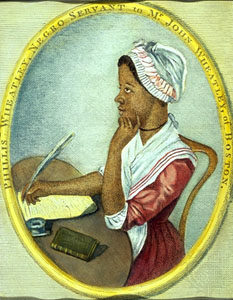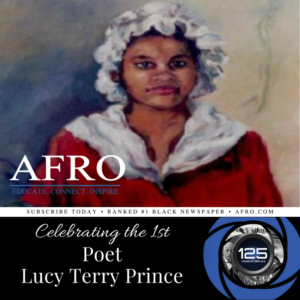The Truths of the Enslaved: Terry and Wheatley Perspective
Many African-American creative writers were not well known for their hard work. As often dictated the subject and themes as well as had full control of the publication industry. Despite those creative writers realized that their voices had to be heard and they were able to by revealing deep stories and memories. Most of their writing was aimed towards the white Christians to show how they affected the minds of the people around them mainly blacks during that era. In “Bars Fight” by Lucy Terry and “On Being Brought from Africa to American” by Phillis Wheatley shows the African Americans were re-educated from a young age until adulthood and they still maintained the same mentally.
Lucy Terry was an African American stolen from Africa as an infant and sold into slavery. Growing up she was basically raised in a white supremacist mentality since she was raised with them. She didn’t have anyone to really guide her on the right path regarding our history so everything told to her was basically false. When Lucy Terry wrote “Bars Fight” specifically, it was during the time where the Indians and the white colonists were fighting. ” August ‘Twas the twenty-fifth/ Seventeen hundred forty-six/The Indians did in the ambush lay/ The names of whom I’ll not leave out. Samuel Allen like a hero fout/ And though he was so brave and bold/ His face no more shalt we behold/ Eteazer Hawks was killed outright/ Before he had time to fight-“. This quote reveals that Terry was basically looking at her own people as they were the enemies and the whites were not out of line. As Terry also being a person of color just like the Native Americans presented in this poem, it is significant because she sees the Native Americans as the threat rather than the people that are opposite from her. Throughout the poem, the author uses diction to reveal how she felt about both sides. She uses words like “brave” and “hero” to describe the whites that fought during that ambush which indicates words like an “ambush” “killed” “fight” “grief” “pain” and “dead” to explain what they Indians committed that day. Through the use of the words, she also able to allow her readers to visualize what had happened during that battle. Her words used in the poem created a scenery. By Terry uses these words to describe the Indians and White colonist it already leaves a prejudice on both groups. Through the use of the words, she has also allowed her readers to visualize what happened during that battle. The words used helped the readers indicate that Terry only agrees with that the whites told her to agree with because she basically has their mindset due to being surrounded by them her entire life.
Unlike the other author, Wheatley knew what was happening during her time just like how she knew she was in the time of slavery. Wheatley was only eight-years-old when she was taken from her country and enslaved in America. A young child, she didn’t know how to think for herself. Being raised in that environment without her colored people at such a young age took an impact on how she thought because she only believes what she was taught from one perspective and not the other. She believed that slavery has made her life better due to her “finding herself” in other words her religion. “Some view our stable race with scornful eye/ “Their colour is a diabolic die.” /Remember, Christians, Negros, black as Cain/ May be refin’d and join the’ angelic train.” (4-8). This quote revealed that Wheatly was aware that she has been taken away by force in her younger years but has appreciated the outcome because she has found the religion of what they had taught her to believe in.
In the article “ The Black Canon: Reconstructing Black American Literary Criticism” by Joyce A. Joyce I was able to identify that this article can relate to both Lucy Terry and Phillis Wheatley. In this article, Joyce conveyed how black literature was extremely difficult to express in the white platform which I feel is the situation of the poets Terry and Wheatley. Both authors Lucy Terry and Phillis Wheatley are griots. Storytellers aiming for the white Christian audience but, they used different stories. Terry and Wheatly both use a true rhyme scheme to write their poems and make it understandable for the readers. I do not agree with the poems the writers have written because although their poems were written greatly, neither poet seemed to represent the perspective of a Native American or African American. Both poets were raised by the white families and did not really have the same experience as the Native Ameican or African American so their ideas were different. I feel like if the writers were to never been raised by the white supremacist they could’ve seen what really was going on. However, poems despite aimed towards a white audience, their message impacted everyone all over the world.
Works Cited
The Black Canon: Reconstructing Black American Literary Criticism. Joyce A. Joyce. Wed, 28 Aug 2019


